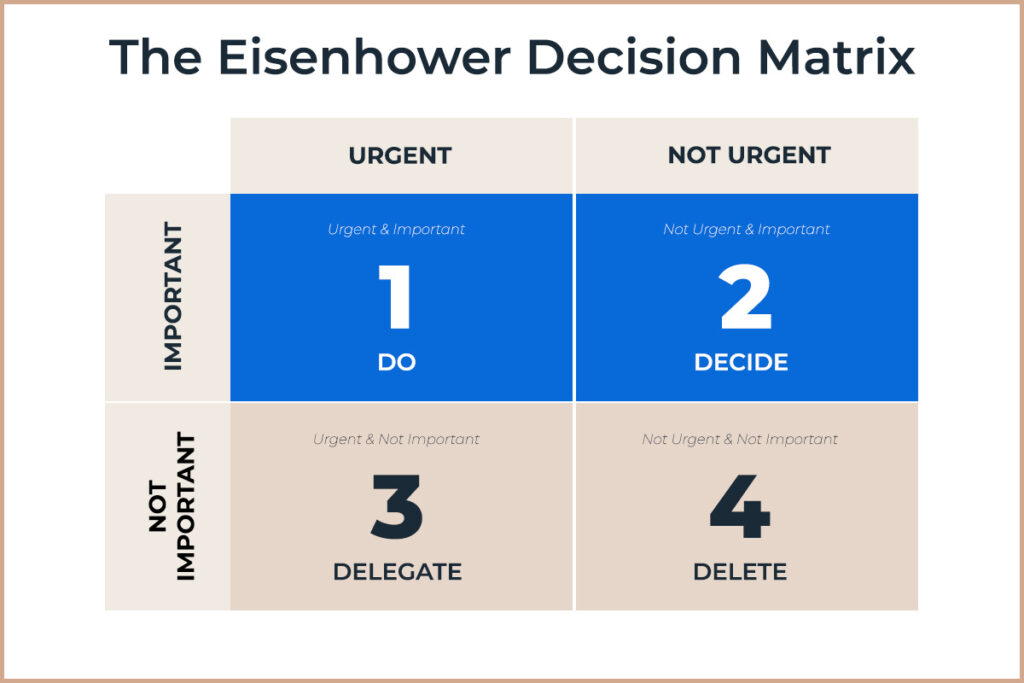Getting things done, in short – GTD is a process of becoming organized and productive at the same time. Whoa! That was like throwing jargon. Relax! Today, we will crack the nut for you and reveal the ways to live effectively by getting the right things done.
GTD simply means to do the things you have to do in less time so that you get some extra time to do the things you want to do. GTD is a technique to organize your to-dos, internal commitments, schedules, and priorities in such a way that you become able to execute all of them effectively.
To get things done, one has to go through these:
5 principle workflow of GTD:
1 Capture
The thinker will keep thinking and the doer will start with the first step of execution by writing all his/her ideas and to-dos on a paper or to-do app or planner. If you have a new idea on your head, write it down.
“You spend your whole life stuck in the labyrinth, thinking about how you’ll escape one day, and how awesome it will be, and imagining that future keeps you going, but you never do it. You just use the future to escape the present.”
John Green
2. Process
Don’t just write it down, write the process-wise details. Break the ideas into an executable form. All of the ideas won’t be practical and feasible. Toss those ideas which won’t be worth executing.
3. Organize
You know your priorities and what to do first. Assign the tasks on the basis of their priorities and tag due-dates to each of them. Set reminders for follow-ups. Remember, you are not doing it right away, but manage it in the best way so that you don’t need to revise it later in the future. Make the execution process the easiest.
4. Review
Review your lists and to-dos frequently (regularly, if possible). It will constantly stir the interest and enthusiasm inside you. If some task is seeming vague, you can choose what to do in this step. You can decide whether to break it down or keep it aside for a while. You can adjust your priorities in this step too.
5. Execute
Just do it! Engage in your actions. By this point, you know exactly what and how to execute. Since you won’t be confused, you will be able to execute quickly and save your time and effort.
You are now a doer, an executioner. You have already started becoming productive. Getting things done means a sign of success.

“Only 8% of people achieve their goals.”
Getting things done means completing a goal. Once you start getting things done, it will become your habit. People struggle to complete what they start, and there you are efficiently completing what you started. When it comes to GTD, half of the struggle is to get yourself in gear. Once you start doing, you will keep going. You will start building ‘productivity ‘momentum’.
“An object will remain at rest or in uniform motion in a straight line unless acted upon by an external force.”
– Newton’s first law of motion
Productivity momentum is just like Newton’s first law of motion. Action drives more action and hence you will execute one task after another. Completion leads to more things getting done. Once you complete something, it brings so much enthusiasm and inspiration which will drive you to complete more things.
Getting Things Done vs Getting The Right Things Done
People fall into the biggest dilemma between getting things done and getting the right things done. Getting things done is like activity and getting the right things done is an accomplishment.
“What is important is seldom urgent and what is urgent is seldom important.”
– Dwight Eisenhower, 34th President of the USA
The ‘Eisenhower Decision Matrix’ proposed by Dwight Eisenhower will help you to understand the difference between getting things done and getting the right things done.

But first, you should understand the difference between urgent and important.
Urgent tasks are those time-bound tasks having a sense of immediacy. Important tasks are those that contribute to the long-term values and goals.
Quadrant 1: Urgent & Important (DO)
These are the tasks that you need to execute right away. These are the tasks with high priority. These tasks are mostly time-bound, ie; they have deadlines. Doing these tasks at the right time will save you from catastrophes.
Mostly, people don’t do these types of tasks until the last minute and panic on the deadlines.
Example: Finishing a client project.
Quadrant 2: Not Urgent & Important(DECIDE)
These types of tasks don’t have a sense of urgency but are utterly important. If you do these tasks, it would help you grow and solve future problems. These tasks are without deadlines so you must decide and schedule them. These tasks are easy to procrastinate on.
If not done on time, these tasks might approach with urgency.
Example: Strategic planning.
Quadrant 3: Urgent & Not Important (DELEGATE)
These are the small everyday tasks that can be delegated or automated. These types of tasks don’t require specific skills but they need to be done. You can lend a helping hand to execute these types of tasks.
Example: Preparing meals.
Quadrant 4: Not Urgent & Not Important (DELETE)
The tasks of this category can be dropped. The tasks are basically distractions that you need to delete or minimize. But they can be okay if done properly. You need to learn to say no to these kinds of tasks.
Example: Using social media.
You need to learn to set priorities for the tasks that you need to do. Just doing whatever is on the way won’t help you progress. You can execute a task with no value at all. So, you must set priorities so that you can do the right things at the right time rather than just do a thing. Executing the right things at the right time brings more value to your life and helps you grow.
Distinguishing between getting things done and getting the right things done will bring more clarity of mind. And hence executing the right things at the right time every day will help you become a better person.
Being an effective executive is an art you must excel in.

You need to go through the following 5 steps to master the art of Being the Effective Executive.
5 steps to being the Effect Executive.
1. Record where the time goes:
You should know where your time goes. This helps you realize if you are investing or wasting your time. If you cut off those actions that are wasting your time, you will save a lot of time and effort. And you can utilize that time for your growth and self-improvement.
2. Focus on outward contribution:
You should gear your efforts for the best results. You should not just work for yourself, you should be able to bring value and good results in people’s lives. An effective executive always questions one thing to him/herself, i.e; “What results are expected from me”? So, we need to learn to make a contribution to others as well.
3. Build on strengths:
You need to use all the available strengths (from associates, seniors, juniors) to get the best result. You should learn to build on collective strength rather than getting stuck on the chaos. You need to focus on the strength than focusing on the weakness. Having this attitude, you can form a good team and move along with the team.
4. Concentrate on the few major areas where your best performance will bring outstanding results:
You need to set the best priorities you can work on. You might not be a master of all. So, staying focused on the field you excel on will help you yield the best results. First things first, and if you drift away to find an alternative, you won’t be able to complete a single thing. So, you should only set priorities on those things which you can perform well.
5. Make effective decisions:
Making a decision means making a judgment. It’s not a universal rule that decisions always have to be made between right or wrong, sometimes decisions have to be made among the alternatives, and that is the hardest part. To make an effective decision, you need to be analytically and ethically rational. So, to excel the art to become an effective execute, you should first excel the art of making effective decisions as well.
Living effective will guide you to success
Different types of problems arise in life, you must not start solving whatever problem comes on the way. Life is not just about tackling urgent tasks. You might waste hell a lot of time tackling the so-called-urgent tasks. This is neither a sign of becoming productive nor becoming an effective executive. Just calm down, sit back, and relax. Set the priorities first and then get the right things done.
Becoming effective means enhancing many shades of your life. You start becoming very rational once you start becoming effective. You can take calculated risks, invest your time in the best direction, start investing time in self-development activities. These are all signs of wise habits. Practicing these habits will eventually lead you to success.
Just stick to the discipline of getting the right things done and no one will stop you from becoming successful. Sometimes, just acknowledging a few things will help you figure out the thing that is halting your growth. Slow down your mind, take a few long deep breaths in, and ask the following questions to yourself.
- What is stopping you from being effective?
- Do you prioritize your task or does your day gets spent with other’s priorities?
- Do you feel productive?
- Are you getting the right things done or just getting things done?
Give it a shot and please let me know if it helped or not, I am eager to learn from you as well so please contact me if you have a better way by commenting below. You can also find me on other platforms here, LinkedIn, Facebook, Instagram, and Twitter.

